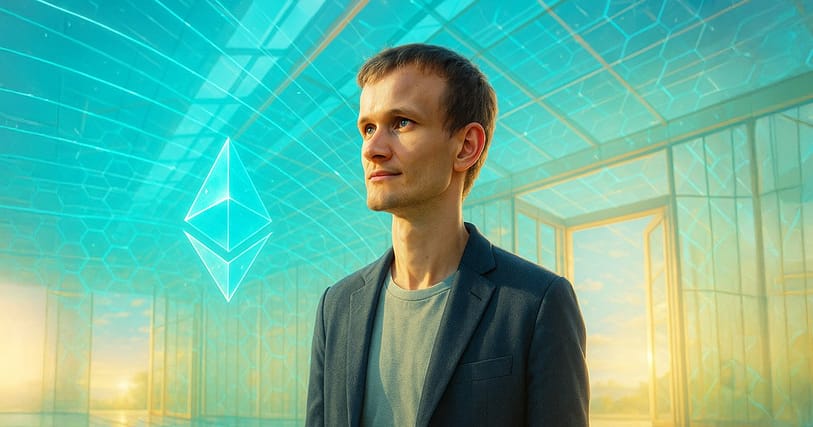Ethereum co-founder Vitalik Buterin warned that society’s rising reliance on digital infrastructure may erode public belief until applied sciences are constructed on open and verifiable foundations.
In a Sept. 24 weblog post, he argued that healthcare methods, civic instruments, and private applied sciences face heightened dangers when customers can’t see how the methods that govern them work.
Buterin stated the speedy tempo of worldwide innovation has deepened humanity’s dependence on digital instruments, from well being trackers to encrypted messaging. That reliance, he cautioned, can create harmful concentrations of energy if firms or governments management the underlying infrastructure.
To keep away from that end result, he urged builders to prioritize open-source design and verifiability that finish customers can test instantly.
Based on him:
“[These technologies] advantages are too nice, and in a extremely aggressive world setting, civilizations that reject these applied sciences will lose first competitiveness after which sovereignty to those who embrace them. Nevertheless, along with providing highly effective advantages, these applied sciences deeply have an effect on energy dynamics, each inside and between international locations.”
Open methods purposes
Buterin pointed to healthcare as a sector the place the stakes are significantly excessive.
He defined that proprietary well being information platforms go away people depending on company gatekeepers, who can cost charges or block entry altogether.
In contrast, open and verifiable methods would enable defensive biotech to battle pandemics whereas preserving public belief within the information behind the response.
He additionally warned that insecure information methods create direct threats to security. Stolen well being information may allow insurers to use clients or criminals to focus on victims primarily based on location monitoring. He famous:
“If this sort of private well being information is insecure, somebody who hacks it will probably blackmail you over any well being points, optimize pricing of insurance coverage and healthcare merchandise to extract worth from you, and if the information contains location monitoring they know the place to attend so that you can kidnap you.”
Within the case of brain-computer interfaces, a profitable hack may enable hostile actors to learn or manipulate an individual’s ideas, a situation he harassed is not science fiction.
Buterin argued that the identical dangers prolong to civic know-how and private gadgets.
Based on him, clear voting methods, encrypted communication, and open-source working methods may counter centralization and empower customers, whereas closed methods improve the chance of manipulation and lock-in.
The Ethereum co-founder opined:
“Open instruments for constructing must be extensively obtainable, and the infrastructure and code bases must be freely licensed to permit others to construct on high.”
Cryptography resolution
Buterin acknowledged that reaching his imaginative and prescient of “open and verifiable” societies would require superior cryptography, together with zero-knowledge proofs, homomorphic encryption, and formally verified {hardware}.
Based on him:
“ZK-SNARKs, absolutely homomorphic encryption and obfuscation – are so highly effective as a result of they allow you to compute arbitrary packages on information in multi-party contexts, and provides ensures in regards to the output, whereas holding the information and the computation non-public.”
Whereas these methods might sacrifice some efficiency and problem customary enterprise fashions, he insisted that the trade-offs are worthwhile.
Buterin proposed beginning with domains the place belief is extra necessary than pace, comparable to safe communications and healthcare purposes. He argued that builders can create fashions that steadily prolong throughout the digital economic system by first embedding openness and verifiability in these areas.
Nevertheless, Buterin concluded that:
“It’s unrealistic to realize most safety and openness for every little thing. However we will begin by making certain that these properties can be found in these domains the place they actually matter.”

